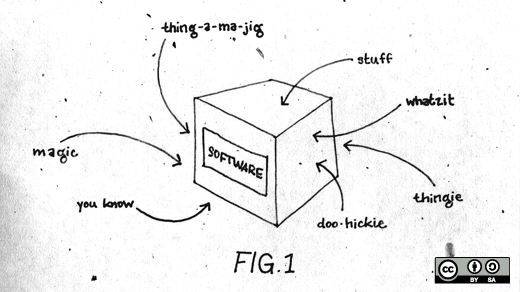Last April, a federal court in California handed down a decision in Artifex Software, Inc. v. Hancom, Inc., 2017 WL 1477373 (N.D. Cal. 2017), adding a new perspective to the forms of remedies available for breach of the General Public License (GPL). Sadly, this case reignited the decades-old license/contract debate due to some misinterpretations under which the court ruled the GPL to be a contract. Before looking at the remedy developments, it’s worth reviewing why the license debate even exists.
When you think about remedies for a GPL breach, you probably imagine a claim for copyright infringement. This doctrine of law seems fit to enforce the GPL, as one of the most powerful remedies available for copyright infringement is injunctive relief. For GPL violations, this usually means preventing the infringer from distributing noncompliant software. Copyright law also provides for actual and statutory damages. In contrast, remedies for breach of contract are rather limited, typically only used to make a party whole from resulting losses, although other forms of recovery may be possible. For GPL software, loss calculations may be difficult, as Hancom pointed out in their motion for summary judgment (though this was rejected by the court).
There have been a number of ideas advanced as to why the GPL should be viewed as a license as opposed to a contract. For example, the Free Software Foundation has long held that the GPL is not a contract. This distinction between a contract and an open source license can be found in the nature of the agreement: a contract is an exchange of promises or covenants, whereas an open source license gives conditions upon which the license may be used. Courts have supported this idea, with Jacobsen v. Katzer, 535 F.3d 1373 (Fed. Cir. 2008), holding that the Artistic License enumerated conditions and not covenants. In light of this, the license/contract debate has quieted with the idea that a breach of license is a viable cause of action with powerful remedies.
This leads us to Artifex, where a claim was brought for both breach of license (to be expected based on the above), as well as breach of contract. There have been a number of articles discussing the court’s contract analysis, including by the FSF, so this article will not discuss this idea at length. To summarize the analysis, the court found that the elements creating a contract (offer, acceptance, and consideration) were sufficiently pleaded, with most of its focus on acceptance of the GPL if viewed as a contract. The court looked for indications of acceptance outside the GPL, finding it in online representations Hancom made about Ghostscript and the dual-licensing nature of the product. Accordingly, the court found that a contract might exist.
Here, we are focused on two issues beyond the court’s contract analysis. First, it’s important to note the significance of the word “might” as used above. Artifex’s order came from a motion to dismiss, assessing only the plausibility of Artifex’s claim, not the merits of it. The court conducted no further legal analysis on the matter, so if the point had actually been litigated, it may or may not have found a legal contract. Since the point was conceded in the second motion and the parties settled privately, we won’t know how the argument would have played out.
Next, though a possible contract claim is important, there is a more interesting second issue. Pre-Artifex, the copyright versus contract discussion was also put in abeyance in part due to preemption. When Congress enacted the Copyright Act, it superseded any inconsistent state law claims, such as state-law copyright protections for equivalent rights. Preemption could be avoided if the state law claim (e.g., breach of contract) involved rights "qualitatively different from the [federal] copyright rights" (quoting Artifex). In determining whether preemption exists, a court will ask whether the state law claim has an “extra element” that reaches outside the scope of federal copyright law.
In arguing for an “extra element” to substantiate their breach of contract claim, Artifex relied on Versata Software, Inc. v. Ameriprise Fin., Inc., 2014 WL 950065 (W.D. Tex. 2014), which concluded that the copyright laws themselves do not impose any open source obligations. Thus any “extra elements” (such as an open source obligation) would be outside the scope of federal copyright law, thereby making a state-law breach of contract claim viable. Accordingly, Artifex advanced this concept along with another concept relating to extraterritorial infringement (which is outside the scope of this article), with the court finding that the breach of contract claim could proceed, allowing possible recovery under both contract and copyright law, without detracting from either claim.
The ultimate effect of this case remains to be seen, but the result paints a path of multiple remedies via copyright infringement and breach of contract for violations of the GPL.







Comments are closed.